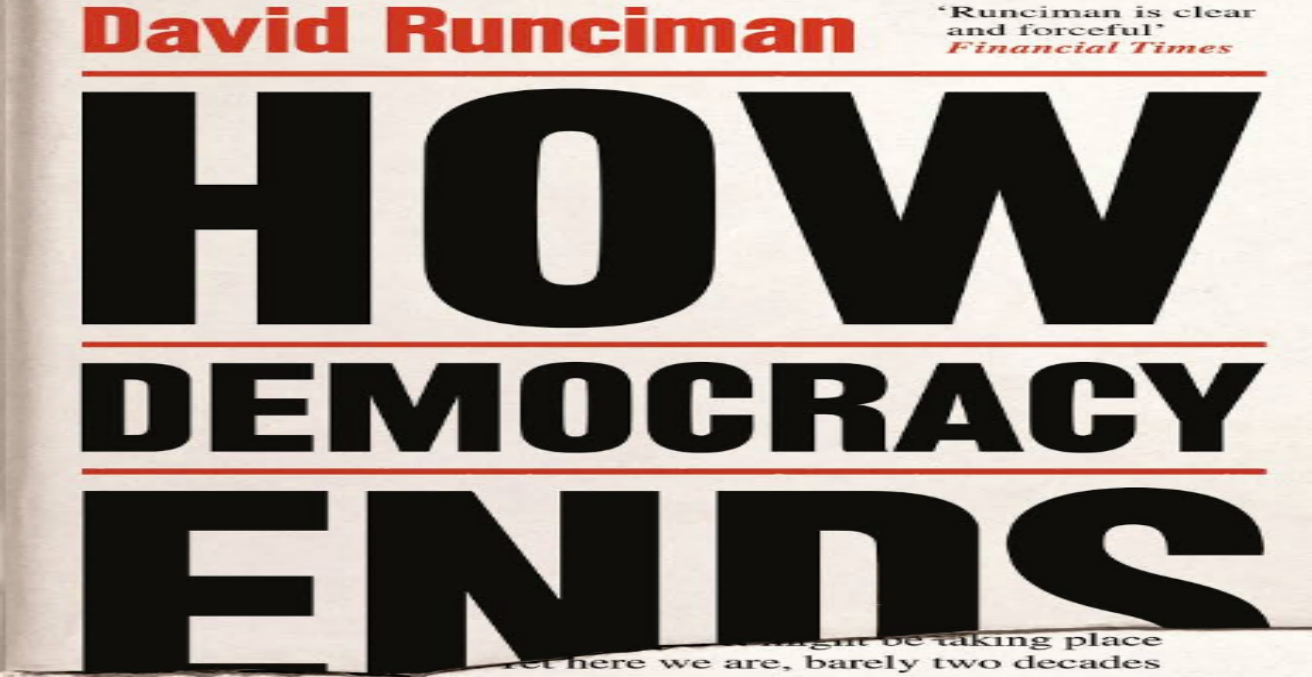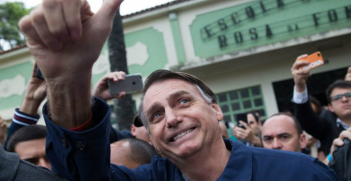Reading Room: How Democracy Ends

The rise of populists, a growing number of authoritarian regimes and an apparent loss of confidence in democratic politicians have all contributed to the idea that democracy is in serious trouble.
These are troubling times for admirers of democracy. The rise of right- and left-wing populists, a growing number of authoritarian regimes and an apparent loss of confidence in democratic politicians—especially amongst the young—have all contributed to the idea that democracy is in serious trouble.
David Runciman is one of an increasing number of observers who worries that democracy’s problems may prove terminal. Runciman’s analysis is alarmingly persuasive, in part because he has long been one of the shrewder observers of contemporary politics and writes with the authority of one who understands what’s at stake and how we collectively got to this point.
Thankfully, he doesn’t bludgeon the reader with his learning or the leaden prose that sometime accompanies so much academic writing. On the contrary, Runciman provides one of the more accessible—even compelling—introductions to the sorry state of global politics currently available.
One of the reasons this book is highly recommended is that despite the number of competing titles covering similar ground, Runciman offers a distinctive and original interpretation of the democratic malaise. A large part of the problem, he argues, is that the forces that held democratic societies together during the even greater crises of the twentieth century no longer work.
The rise of identity politics and the concomitant loss of a sense of collective purpose are undermining the foundations of participatory politics. The remarkable decline in the membership of many traditional political parties and trade unions seems to bear this point out. Francis Fukuyama—notorious for predicting the triumph of liberal democracy—is another observer who lays much of the blame for the failure of contemporary politics at the feet of special interests and the neglect of those left behind by globalisation.
While some of these ideas may have rapidly become the conventional wisdom, what sets Runciman’s diagnosis apart, in my view, is his recognition of the divisive impact of climate change and environmental degradation. In the affluent West, he argues, there is “a distinct sense of apocalypse fatigue.” Consequently, an issue that might be thought to be quintessentially global and all-inclusive is actually proving divisive. The diffuse, unfathomable nature of contemporary catastrophe is “stultifying” rather than galvanising.
The diminished faith in the ability of the “epistrocracy”—the possessors of expert knowledge and insight—to provide definitive answers to unprecedented problems is also a contributing factor to a systemic loss of confidence in the old order. Rather surprisingly, however, Runciman doesn’t really consider the international drivers of some of these problems.
Yet the political consequences of unregulated migration into Europe, for example, underlie many of the European Union’s current problems and even threaten its continuing existence. It is no coincidence that right-wing nationalism has experienced an upsurge in much of the West and resulted in potentially disastrous and destabilising phenomenon such as Brexit.
One of the attractions of authoritarians, Runciman suggests, is not simply that they offer simplistic solutions to complex problems, but that they promise to restore an old order in which the positions of the marginalised and disaffected will be restored: “In place of personal dignity plus collective benefits, [authoritarians] promise personal benefits plus collective dignity.”
There is plainly something in this claim. The growth of leaders promising to restore countries to their former glory and/or proper place in the international scheme of things is not confined to the likes of China, Russia or Turkey. On the contrary, Donald Trump’s “America first” movement employs a similar rhetoric and an alarming disdain for democratic principles and the rule of law.
Both the United States and China also illustrate a final, paradoxical feature of the contemporary political order that has failed to live up to the hopes that many invested in it. Technology and the communication revolution have not unleashed an unstoppable tide of political liberalism and freedom of speech. China’s increasingly sophisticated and pervasive surveillance state is perhaps the most comprehensive confirmation of Runciman’s claim that “the internet has not proved to be an autocracy-busting machine. It has turned into another useful tool of power.”
The rather sobering conclusion of this book is that “mature, Western democracy is over the hill.” The signs of failure may be different from earlier eras and are likely to surprise us, he suggests. On a more positive note, the possible alternatives to traditional democratic politics might surprise us, too; “there are no better alternatives around at present, but that does not mean that none are possible.” Let’s hope he’s right about that, too.
David Runciman, How Democracy Ends (London: Profile Books, 2018).
Mark Beeson is Professor of Political Science and International Relations at the University of Western Australia and the AIIA National Research Chair, appointed in February 2017. Professor Beeson is co-editor of the latest volume in the AIIA’s Australia in World Affairs series and is a speaker at the upcoming AIIA National Conference on 15 October.
This article is published under a Creative Commons Licence and may be republished with attribution.





